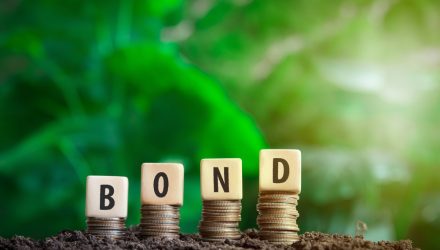The second quarter and the first half of the year conclude on Friday. With that comes a bevy of mid-year outlooks and experts offering up ideas and strategies for the second half of 2023. For advisors and investors, there’s considerable discussion about what the July through December period could have in store for the bond space.
Broadly speaking, bonds, including corporate debt, delivered decent performances in the first half of 2023. Some experts believe corporates could be rewarding again in the second half, but they caution that investors should be selective when accessing this asset class.
Enter the Calvert Ultra-Short Investment Grade ETF (NYSE Arca: CVSB). Fresh off its January debut, CVSB could be an ideal fixed income exchange traded fund to consider in the back half of the year for multiple reasons, not the least of which is the point that if the economy materially contracts or finds its way into recession, investment-grade bonds could outperform junk debt.
“For more conservative investors looking for income today, we prefer investment-grade-rated corporate bonds. For those investors who are willing to take more risk to earn higher yields, highly rated preferreds appear more attractive than high-yield bonds. If the economy slows, as we expect, high-yield bond prices may fall sharply,” according to Charles Schwab research.
CVSB Could Be Right Second-Half Bond Call
Quality is always a virtue with bonds, but CVSB sports other appealing attributes. Those include a 30-day SEC yield of 5.72%. That’s well in excess of what investors find on aggregate bond and competing short-term investment-grade corporate debt benchmarks.
“Investment-grade corporate bonds still appear attractive for investors looking to earn higher yields without taking too much additional risk. Yields generally remain near their highest levels since 2009, with the average yield-to-worst (the lowest possible yield that can be received on a bond with an early retirement provision) of the Bloomberg U.S. Corporate Bond Index closing at 5.5% on June 16th,” added Schwab.
Notably, CVSB has significantly less interest rate sensitivity (duration) than that Bloomberg index. Speaking of duration, CVSB’s is just 0.64 years, indicating the ETF could be somewhat sturdy even if the Federal Reserve revisits rate hikes in the second half.
Additionally, CVSB’s credit purview could prove beneficial to risk-averse investors in the second half, resulting in a less volatile way of generating income.
“Despite those concerns, the high-yield bond market has been one of the best-performing fixed income investments this year. We don’t expect that trend to continue, but it’s still possible for high-yield bonds to post positive total returns even if spreads rise,” concluded Schwab.
For more news, information, and analysis, visit the Responsible Investing Channel.

